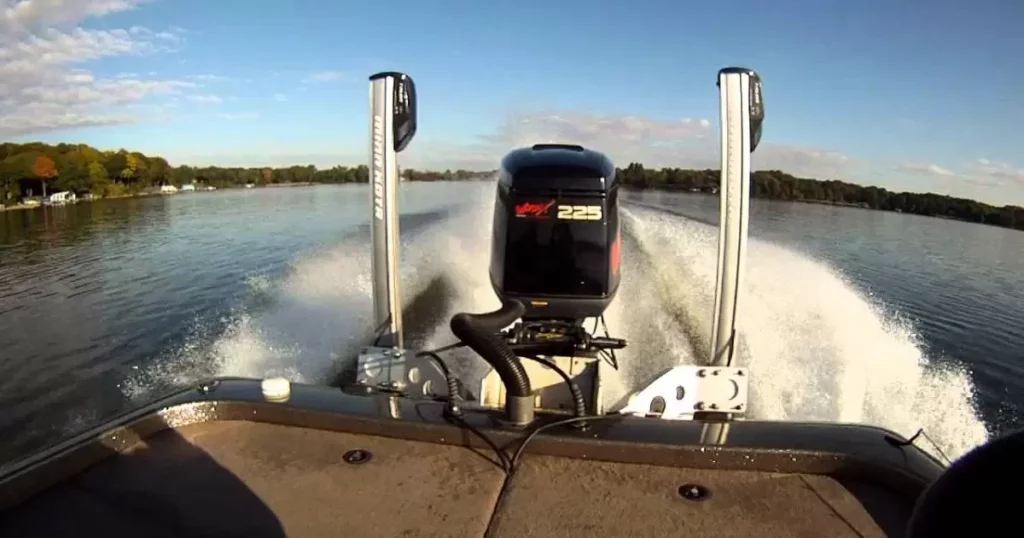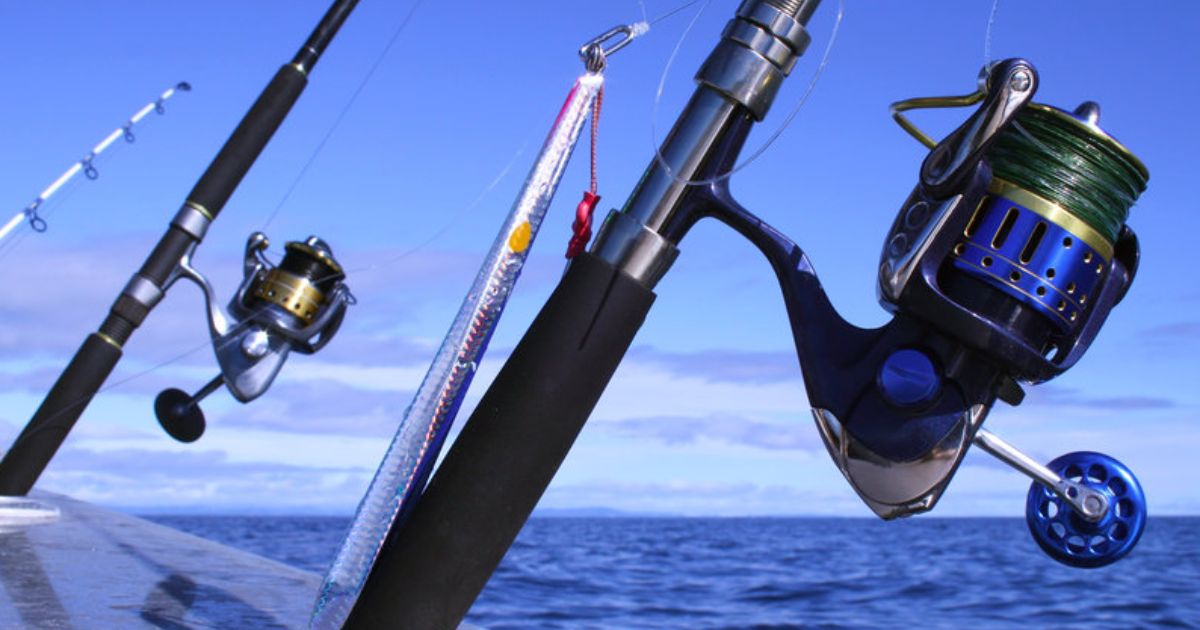A bass fishing pole is the primary tool used in angling for bass. It’s a long, slender device designed to cast your line and reel in bass. The size and characteristics of the pole play a crucial role in determining your success while bass fishing.
Are you wondering, What size pole for bass fishing? Finding the right size pole is a vital decision that can greatly impact your fishing experience. The choice of size will determine your casting distance, sensitivity to fish bites, and overall control over your line.
When it comes to the size of the pole for bass fishing, it’s essential to consider factors like the length and power of the rod. A shorter rod, typically between 6 to 7 feet, offers better accuracy and control in close quarters, while longer rods of 7 to 8 feet can help you cast further.
Choosing the Right Bass Fishing Pole Size
Selecting the right pole size is crucial when it comes to bass fishing. The size of your pole affects your casting distance, accuracy, and overall performance on the water. Factors such as the type of bass you’re targeting, the unique behaviors of different bass species, and your preferred fishing style all play a significant role in determining the ideal pole size for your needs. Understanding how these elements interact is key to optimizing your bass fishing experience and landing more of those prized catches.
Benefits of Matching Pole Size to Bass Species
Matching your pole size to the specific bass species you intend to catch can greatly enhance your success. Different bass species, such as largemouth, smallmouth, and spotted bass, vary not only in size but also in their behavior and habitat preferences. Tailoring your pole size to your target species ensures that you can effectively control and reel in these diverse bass populations, increasing your chances of a rewarding fishing experience.
Understanding Rod Length for Bass Fishing
Rod length is a critical aspect of choosing the right pole for bass fishing. Shorter rods, typically between 6 to 7 feet, provide better control and accuracy in tight spaces, while longer rods of 7 to 8 feet can help you cast further and cover more water. Understanding how rod length affects your fishing style is essential.
| Rod Length Range | Characteristics |
| 6 to 7 feet | – Better control and accuracy in tight spaces. |
| – Suitable for finesse techniques. |
| – Ideal for fishing in small bodies of water. | |
| 7 to 8 feet | – Extended casting distance and coverage. |
| – Suitable for open water scenarios. | |
| – Effective for long-distance casting. |
Exploring Different Power Ratings for Bass Poles

Power ratings refer to the strength of a fishing rod, determining its ability to handle the weight of the fish. When selecting a bass pole, you’ll encounter different power ratings, such as ultra-light, light, medium, medium-heavy, and heavy. Each rating has its advantages: ultra-light is perfect for finesse fishing, light offers versatility, medium balances sensitivity and power, medium-heavy handles bigger bass, and heavy rods tackle the toughest battles. It’s essential to explore and understand these ratings to choose the one that perfectly suits your specific bass fishing needs. Your chosen power rating can make a significant difference in your overall fishing experience.
Spinning Rods vs. Casting Rods for Bass Fishing
Bass anglers often face the choice between spinning rods and casting rods. Each type has its unique characteristics, and the choice depends on your fishing preferences and the specific techniques you plan to use. Spinning rods are known for their versatility, making them a great choice for various fishing styles and adaptable to different lures.
On the other hand, casting rods offer exceptional accuracy and power, which can be advantageous when you need to place your bait precisely or handle larger bass. Your choice between these rod types can significantly impact the pole size that suits your specific bass fishing needs.
Factors Influencing Bass Pole Size Selection
Several factors influence the selection of the right pole size for bass fishing. These include the type of water you’re fishing in, such as lakes, rivers, or ponds, each requiring different pole lengths. Your chosen techniques, whether finesse or power-based, play a significant role in determining the ideal pole. Additionally, the size of the bass population in your area affects your choice. Taking all these factors into account will ensure you make a well-informed decision tailored to your unique fishing situation.
Balancing Sensitivity and Casting Distance
Balancing sensitivity and casting distance is a crucial aspect of pole size selection in bass fishing. A longer rod enhances your casting range, enabling you to reach distant spots, but it may compromise sensitivity, making it harder to detect subtle fish movements. On the other hand, a shorter rod heightens your sensitivity to even the faintest of bites but may limit your casting range. Striking the perfect equilibrium between these factors is the key to a successful and satisfying bass fishing experience.
Best Pole Sizes for Different Bass Fishing Techniques
Various bass fishing techniques require specific pole sizes to optimize your angling success. For instance, finesse techniques like drop-shotting benefit from a lighter and more sensitive pole, enhancing your ability to detect subtle bites. On the other hand, techniques like flipping and pitching demand a sturdier and shorter rod, granting you better control when navigating through dense cover and making precise casts. Understanding the relationship between pole size and technique is crucial for versatility and making the most of your bass fishing experience.
Adjusting Pole Size for Bass Fishing Environments
The environment you’re fishing in, whether it’s dense vegetation, open water, or deep underwater structures, can significantly influence your choice of pole size. Smaller, more maneuverable poles are favored in tight spaces, allowing you to navigate through vegetation and cover more effectively. In contrast, longer poles are better suited for open water scenarios, where you can cast over greater distances and have the space to handle larger fish with more freedom and control. Understanding how your surroundings impact your pole selection is vital for a successful bass fishing expedition.
Evaluating the Role of Line and Lure in Pole Size Selection
Your choice of fishing line and lures can significantly influence your pole size selection. When using heavier lines and larger lures, opting for a more powerful rod becomes crucial to handle the added weight and strength. On the other hand, if you prefer finesse techniques with lighter lines and smaller lures, a lighter and more sensitive pole will provide the necessary finesse and control. Ensuring that your line and lures are well-matched with your chosen pole size is essential for achieving success in bass fishing.
FAQs
What’s the main factor to consider when choosing a bass fishing pole size?
The main factor is the type of bass you’re targeting and your preferred fishing style.
Does the length of the fishing pole impact my casting distance?
Yes, longer poles can cast further, while shorter ones offer better control in tight spaces.
How do I decide between a spinning rod and a casting rod for bass fishing?
The choice depends on your fishing preferences; spinning rods are versatile, while casting rods offer more accuracy and power.
Are there specific pole sizes for different bass fishing techniques?
Yes, finesse techniques may require lighter and more sensitive poles, while power techniques need sturdier and shorter rods.
How do environmental factors affect pole size selection?
The environment you’re fishing in, such as open water or dense vegetation, can influence the ideal pole size for your situation.
Conclusion
In conclusion, selecting the right size pole for bass fishing is a fundamental aspect of achieving success on the water. Your choice of pole size impacts various critical factors, including casting distance, sensitivity, and your ability to control and land bass. Whether you’re pursuing largemouth, smallmouth, or other bass species, understanding the nuances of pole length, power, and action is essential.
By carefully considering your target bass species, preferred fishing techniques, and the specific environmental conditions you’ll encounter, you can make an informed decision about the perfect pole size. Balancing sensitivity and casting distance is key, and adapting your pole size to match your fishing style and location will lead to a more enjoyable and fruitful bass fishing experience. So, remember, when you’re asking, What size pole for bass fishing? take into account the many factors discussed, and you’ll be well on your way to hooking more bass and enjoying your time on the water.

